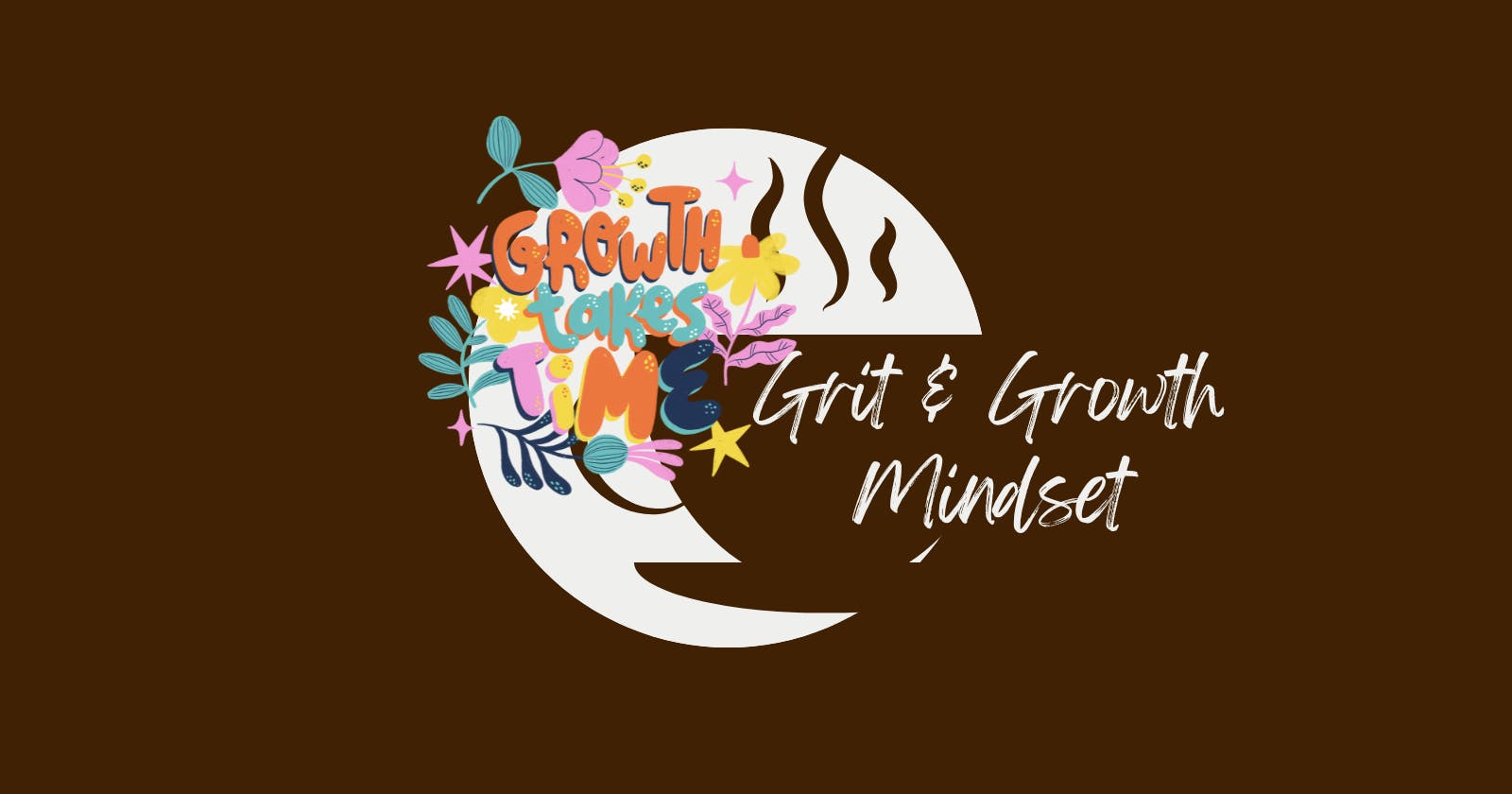Table of contents
No headings in the article.
Grit and growth mindset are two essential concepts that have gained popularity in recent years, notably in the fields of education and personal development. Grit is the capacity to endure difficulties and sustain a long-term objective despite setbacks and failures. The growth mindset, on the other hand, is the concept that one’s abilities and intelligence can be developed through hard work, dedication and learning from failures. In this article, I'll discuss several important takeaways that I acquired from both the Grit & Growth mindset project in an introduction to C programming course I was “shadowing“ this month, as well as from my reading of the book Mindset: How You Can Fulfil Your Potential by Carol S. Dweck two years ago. I will discuss what grit and growth mindset are, how important they are and various research that was found that demonstrates the value of these concepts.
What is grit?
Angela Duckworth, a psychologist, coined the term “grit”. It is described as persistence and passion for long-term goals despite difficulties and disappointments. Individuals with grit are deeply committed to their goals and are willing to work hard and make sacrifices to attain them. When confronted with disappointments and setbacks, they see them as chances for growth and learning and can maintain their concentration and motivation over time.
Importance of grit
There is plenty of evidence that grit is a necessary trait for success in many aspects of life, including school, athletics, and business. The West Point Military Academy study is one that Duckworth highlights. The study looked at the performance of new cadets at West Point and discovered that grit was a greater predictor of success than IQ or physical fitness. Cadets with a high grit score were more likely to graduate from the academy and become officers.
Duckworth conducted another study that highlighted the impact of grit. She observed a group of high school kids in Chicago and discovered that grit was a greater predictor of academic accomplishment than IQ or family income. Students who scored high on the grit scale were more likely to graduate and enrol in college.
Grit is equally crucial in sports. Athletes with grit can persevere in the face of exhaustion and setbacks while maintaining focus and motivation. They are more likely to attain their long-term goals if they remain committed to their training and preparation.
What is a Growth Mindset?
The concept that one’s abilities and intelligence can be developed through hard work, dedication, and learning from mistakes is referred to as a growth mindset. Challenges and setbacks are viewed as chances for growth and improvement by those with a growth mindset. They believe that with dedication and persistence, their talents and abilities will grow over time.

Fixed Mindset
In contrast, individuals with a fixed mindset, on the other hand, feel that their abilities and intelligence are fixed and cannot be altered. Failures and setbacks are seen as proof of their inadequacies, and they are less likely to persevere in the face of adversity. When confronted with difficulties, they are more likely to give up and may not achieve their full potential.
Importance of Growth Mindset
A growth mindset has been proven to be an important component of success, particularly in the field of education. Carol Dweck and her colleagues’ research highlighted the significance of a growth mindset. The subjects of the study were seventh-grade students who struggled with mathematics. The students were placed into two groups, with one receiving study skills education and the other receiving growth mindset education.
The growth mindset group was taught that intelligence is not fixed and can be developed through hard work and learning from mistakes. The study skills group was taught strategies for studying and preparing for tests. At the end of the semester, the students in the growth mindset group showed significant improvement in their mathematics grades compared to the study skills group. A greater level of motivation and enjoyment in mathematics was also reported by the students in the growth mindset group.
Takeway (๑ᵔ⤙ᵔ๑):
Grit helps software developers overcome obstacles and setbacks while working with complex problems, whereas a growth mindset enables them to continuously enhance their skills.
A growth mindset enables software engineers to see problems as opportunities for learning and to embrace new technologies, whereas grit enables them to persevere in the face of frustration in continuous learning.
Grit keeps software developers motivated and focused on project goals, whereas a growth mindset promotes collaboration and open communication in team operations.
In conclusion, grit and growth mindset are essential concepts that can help individuals achieve success in various aspects of their lives. By developing these traits, one can cultivate the persistence, resilience, and sense of purpose needed to overcome challenges and achieve long-term goals. By engaging in practices that help develop grit and a growth mindset, one can build a foundation for success (whatever that might look like for you) and growth in both personal and professional endeavours.
Happy Coding!

